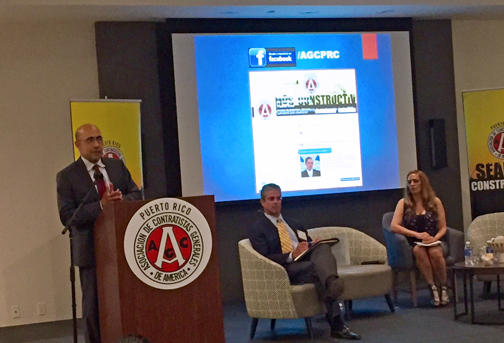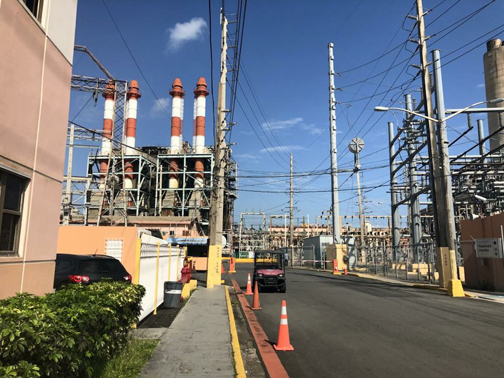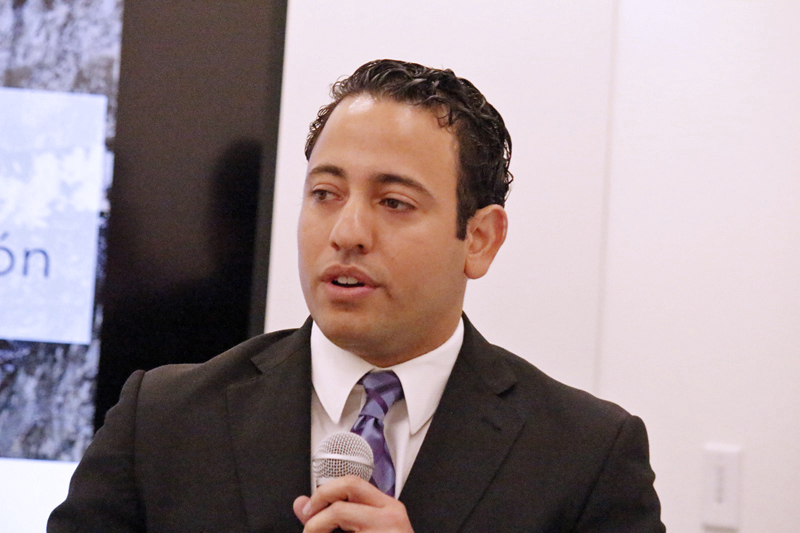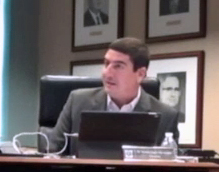CNE stresses ‘sense of urgency’ for Congressional action


During a panel discussion sponsored by the Puerto Rico Chapter of the General Contractors Association, Economist Gustavo Vélez offered his opinion on the options to solve Puerto Rico’s fiscal crisis. Attorney Jorge San Miguel and the group’s President, Neyssa Varela, also spoke.
Center for a New Economy representatives on Thursday stressed the urgency for Congressional action, but cautioned that any bill approved in Washington must provide Puerto Rico with a debt restructuring mechanism “that will actually work.”
“We appreciate the opportunity provided by the Committee to discuss the urgency of addressing the Puerto Rico crisis and the serious consequences that a series of disorganized defaults by the government of Puerto Rico would have for bondholders, creditors, U.S. taxpayers and the residents of Puerto Rico,” said CNE President Miguel Soto-Class.
“Puerto Rico’s economy and fiscal foundation are under enormous duress and the island needs urgent access to a comprehensive debt restructuring mechanism in order to protect the interests of all stakeholders involved in this crisis,” he said during his presentation before members and staffers of the U.S. House of Representatives Committee on Natural Resources.
While the CNE supports Congressional efforts to address the commonwealth’s crisis, Soto-Class expressed the nonprofit think-tank’s concerns that the debt restructuring process as currently drafted in H.R. 4900 might not actually work.
“The debt restructuring mechanism as it stands in the bill is cumbersome and complicated,” cautioned Soto-Class. “Puerto Rico does not need a restructuring bill that can pass a House vote: it needs one that works.”
Meanwhile, Sergio Marxuach, the CNE’s public policy director said “providing Puerto Rico with an effective debt restructuring mechanism is not a bailout. On the contrary, it is a sensible way to protect both mainland investors and taxpayers from the unforeseen consequences of a string of chaotic, disorganized defaults.”
Puerto Rico is contemplating its first major default on May 1, when some $470 million in obligation payments come due. The bulk of that payment is owed by the Government Development Bank, which has been negotiating with creditors in recent weeks.
“Delaying a necessary restructuring of Puerto Rico’s debt will only lead to the destruction of bondholder value and lower recovery levels through additional unsustainable borrowings, high interest rates, and restrictive fiscal policies that amplify economic contraction,” Marxuach said.
A court-supervised process would help ensure fair treatment to all parties, including small, retail investors currently not “at the table,” he added.
The alternative — an untested and potentially disorderly process with numerous creditor lawsuits and years of scorched-earth litigation — would depress the local economy, increase restructuring costs, and make long-term recovery harder to achieve.
“If that scenario were to become a reality, then the probability of a federal bailout would increase significantly as bondholder groups would insist that Congress intervene to rescue them,” he said.
During a panel discussion sponsored by the Puerto Rico Chapter of the General Contractors Association, Economist Gustavo Vélez — a staunch support of the imposition of a federal oversight board for Puerto Rico — said short-term inaction from Congress would result in hefty long-term federal aid for the island.
“Congress will step in and realize that what we have here is a serious problem of a meltdown of the fiscal apparatus. What’s being proposed is not a bailout. But if they don’t act, it will become a rescue that will cost the federal government between $15 billion and $20 billion in aid,” he said. “Inaction now implies the collapse of the central government, insolvent public corporations, the collapse of the retirement systems and the health card. It’s best if they do something now, than wait for a deterioration that will cost them more.”
Attorney Jorge San Miguel, who has testified before Congress on Puerto Rico’s fiscal crisis, said a new version of the draft legislation should be ready by the week of May 10, and could go down for a vote at the House by mid-may. The expectation is that Congress will have a solution ready before the next debt service payment of $2 billion comes due on July 1.
“Republicans have been very clear that they want to help Puerto Rico, and have been clearer than Democrats that the help is highly contingent on the transparency and openness of the Puerto Rican government,” he said. “Specifically, they’re addressing the issue of the audited financial statements, which we haven’t seen for three years.”
While the oversight board being proposed will have the authority to supervise the government, the Commonwealth will still be responsible for producing blaanced budgets and a fiscal plan that pulls the island out of its financial abyss, he said.
“The structure gives Puerto Rico two chances to submit correct budgets, and if it fails to do so, then the board would have the authority to impose,” he said.









